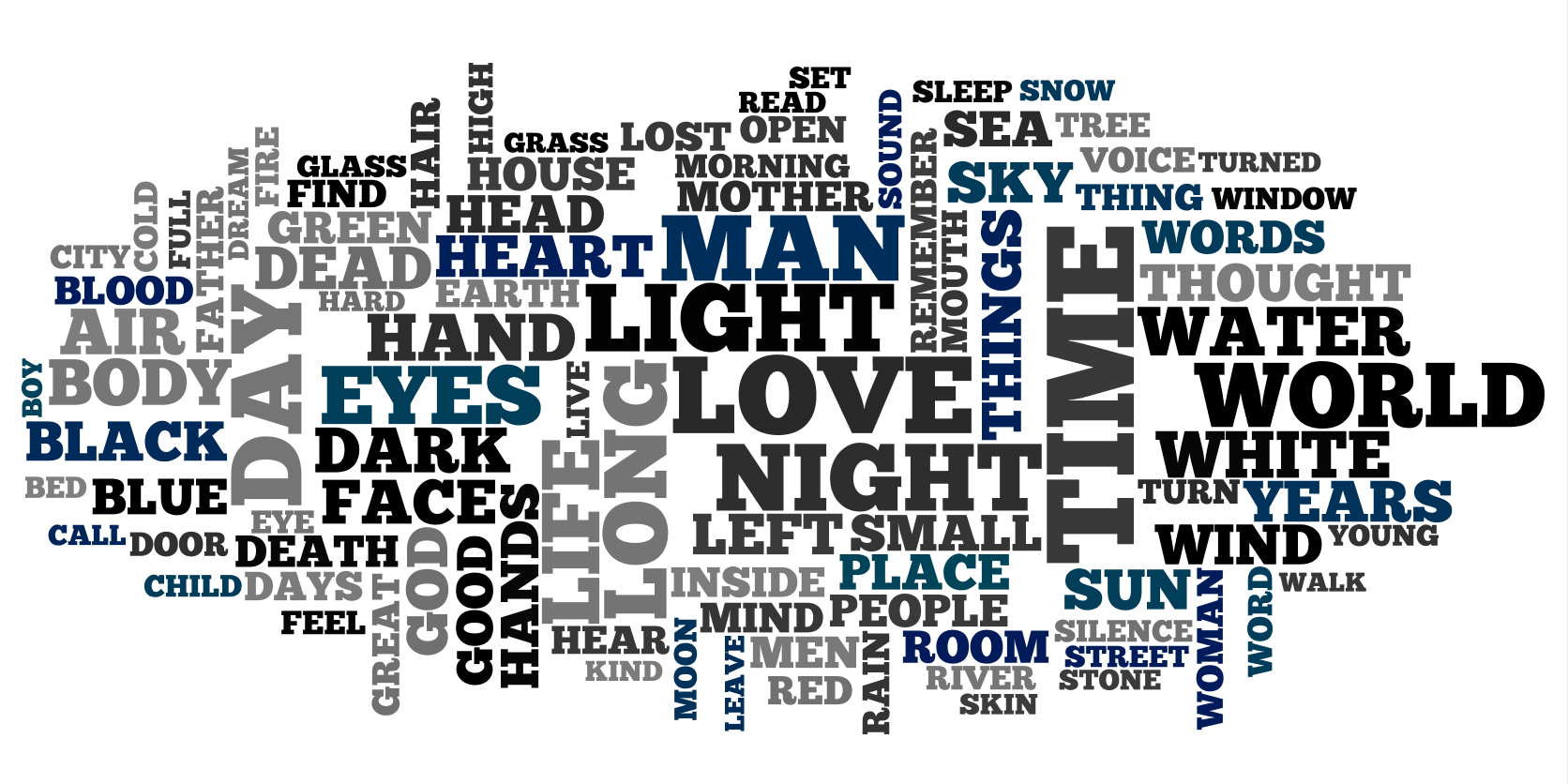Having counted the occurrence of words in nearly 3,000 poems published in Poetry Magazine to create a parameterised random word generator, I am making some other interesting discoveries about these words.
First, as one Twitter user pointed out, the words that come up at each “frequency of occurrence” setting on the generator have their own distinct feel, as if very different types of poets might gravitate toward different clusters of words:
.@PeakePoetics @Don_Share Set the Word Frequency to Infrequent you get the makings of a John Ashbery poem: to Frequent: Robert Bly.
— Bill Manhire (@pacificraft) November 22, 2014
I also created a word cloud using Wordle of the top 100 most-used words, which reveals the nature of these words:

They are all words of one or two syllables, the likes of which you might find in high concentration in my early angst-ridden adolescent poetry journals.
What is interesting, though, is that these words do not appear in high concentration. Of the more than 300,000 instances of words in these poems (the average being just over 100 words in total per poem), these words occur just 11% of the time.
So, the “average” Poetry magazine poem (though, in truth, there may be no such thing) is 106 words long, and incorporates 11 of these top “poetry words” per poem.
Here is a list of the top 25 “poetry words”, with their word counts:
- time (944)
- love (831)
- day (763)
- light (732)
- night (725)
- man (710)
- world (696)
- long (677)
- eyes (631)
- life (624)
- water (527)
- hand (509)
- white (506)
- air (495)
- body (495)
- dark (486)
- face (477)
- dead (463)
- heart (451)
- years (443)
- left (443)
- god (439) [both capitalisations combined]
- sky (436)
- sun (432)
- wind (432)
Note that while “Man” is sixth, woman is 59th on the list. “White” comes in at #11, “black” at #26. And the poets all-time top obsession is, of course, “time” (and then “love”, in that order).
I also classified these words by type using the Wordnet database. Nearly all of the words are nouns or verbs, with only a single modifier showing up in the top-100 list. That word is “hard” (at #93 on the list). I guess your writing teacher was right to suggest that you avoid piling on modifiers for emphasis.
That said, the infrequently-used words are also considerable in number. In fact, words that occur only once in the nearly 3,000 poems analysed make up 42% of all the words used. I wonder if high-quality prose could boast an equally sizeable “long tail” of unique words. Clearly, part of innovation in language involves vocabulary.
As Emerson once said, “Every word was once a poem.” These days, we have a lot to choose from.
(Click here to read the follow-up, with more analysis of “poetry words” and their implications.)